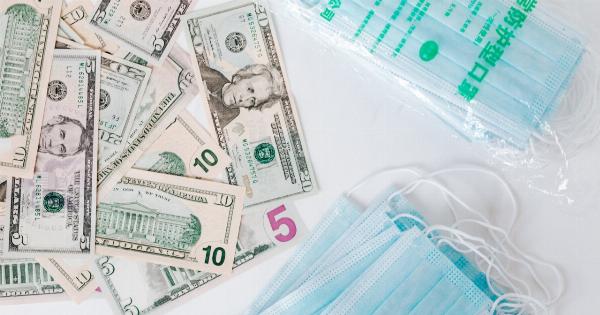Sugar-laden beverages are everywhere. They are advertised on TV, magazines, and billboards. They are marketed as cool, refreshing drinks that quench thirst and taste great. And people love them.
But what they don’t realize is that those drinks are doing serious harm to their health. The scientific evidence is overwhelming. Drinking sugar-laden beverages on a regular basis increases the risk of obesity, type 2 diabetes, heart disease, and other chronic diseases.
What are sugar-laden beverages?
Sugar-laden beverages are drinks that contain added sugars such as sucrose (table sugar) or fructose (fruit sugar). Examples of sugar-laden beverages include soft drinks, energy drinks, sports drinks, fruit drinks, and sweetened tea and coffee.
The sugar epidemic
It is estimated that the average American consumes about 152 pounds of sugar per year, which is equivalent to 3 pounds per week. Most of this sugar comes from sugar-laden beverages. The consequences of this sugar epidemic are dire.
Obesity rates have been skyrocketing in recent decades. Today, more than 70% of American adults are overweight or obese. The obesity epidemic not only affects adults but also children. In fact, one in three children in the US is overweight or obese.
Why are sugar-laden beverages so bad?
There are several reasons why sugar-laden beverages are so bad for our health. Firstly, they are high in calories. A single can of soda contains about 150 calories, which is equivalent to 10 teaspoons of sugar.
If you consume just one can of soda a day, you will gain about 15 pounds in a year. Secondly, they are low in nutrients. Sugar-laden beverages provide little or no nutritional value, unlike fruits and vegetables, which are packed with vitamins, minerals, and antioxidants.
Thirdly, they cause rapid spikes in blood sugar levels, which can cause insulin resistance, a precursor to type 2 diabetes. Fourthly, they increase the risk of heart disease by causing inflammation and oxidative stress in the body. Fifthly, they promote tooth decay by feeding harmful bacteria in the mouth.
Sugar-laden beverages and obesity
There is a strong association between sugar-laden beverages and obesity. Studies have shown that people who consume more sugar-laden beverages are more likely to be overweight or obese.
A six-year study of 50,000 women found that those who consumed one or more sugar-sweetened beverages per day had a 60% increased risk of becoming obese compared to those who consumed less than one sugar-sweetened beverage per month.
Sugar-laden beverages and type 2 diabetes
Sugar-laden beverages are a major contributor to the global epidemic of type 2 diabetes. Several studies have shown that people who consume more sugar-laden beverages are more likely to develop type 2 diabetes.
A study of 91,000 women found that those who consumed one or more sugar-sweetened beverages per day had a 83% increased risk of developing type 2 diabetes compared to those who consumed less than one sugar-sweetened beverage per month. The risk of developing type 2 diabetes was even higher among women who were already overweight or obese.
Sugar-laden beverages and heart disease
Heart disease is one of the leading causes of death in the US. Sugar-laden beverages are a major contributor to this disease. Drinking sugar-laden beverages on a daily basis can increase the risk of heart disease by 20%.
A study of 40,000 men found that those who consumed one or more sugar-sweetened beverages per day had a 20% increased risk of developing heart disease compared to those who consumed less than one sugar-sweetened beverage per month. Another study found that consuming one to two servings of sugar-sweetened beverages per day increases the risk of coronary heart disease by 35%.
Sugar-laden beverages and tooth decay
Sugar-laden beverages are also a major contributor to tooth decay. The bacteria in the mouth feed on the sugar in the beverages and produce acids that erode the enamel on the teeth, leading to cavities.
A study of 3,000 children found that those who consumed more than one sugar-sweetened beverage per day had a 60% increased risk of developing cavities compared to those who consumed less than one sugar-sweetened beverage per month.
How to reduce sugar-laden beverage consumption
Reducing sugar-laden beverage consumption can be challenging, but it is possible. Here are some tips:.
- Drink water instead of sugar-laden beverages.
- Drink unsweetened tea or coffee.
- Choose low-sugar or sugar-free alternatives.
- Read labels and be aware of the sugar content in the beverages you consume.
- Avoid buying large sizes or stocking up on sugar-laden beverages at home.
- Start slowly by reducing the amount of sugar-laden beverages you consume and gradually eliminate them.
The bottom line
Sugar-laden beverages are a major contributor to the global epidemic of chronic diseases. The scientific evidence is overwhelming.
Drinking sugar-laden beverages on a regular basis increases the risk of obesity, type 2 diabetes, heart disease, and other chronic diseases. Reducing sugar-laden beverage consumption can be challenging, but it is possible. Choosing water or unsweetened beverages, reading labels, and gradually eliminating sugar-laden beverages can make a big difference in your health.


























